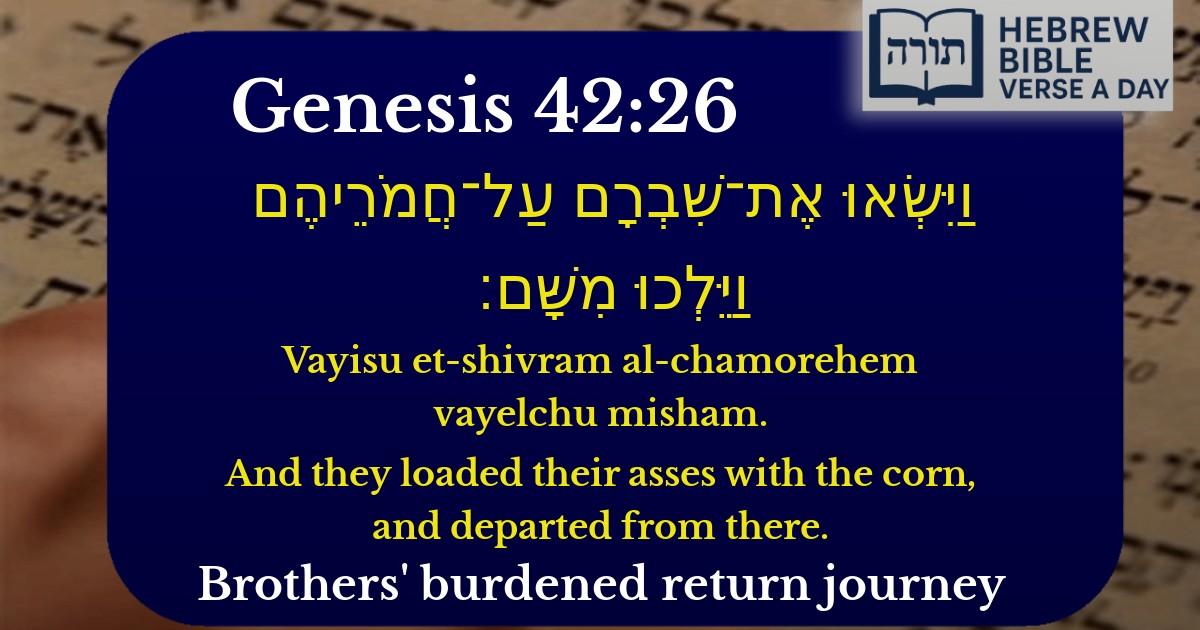Join Our Newsletter To Be Informed When New Videos Are Posted
Join the thousands of fellow Studends who rely on our videos to learn how to read the bible in Hebrew for free!
Hebrew Text
וַיִּשְׂאוּ אֶת־שִׁבְרָם עַל־חֲמֹרֵיהֶם וַיֵּלְכוּ מִשָּׁם׃
English Translation
And they loaded their asses with the corn, and departed from there.
Transliteration
Vayisu et-shivram al-chamorehem vayelchu misham.
Hebrew Leining Text
וַיִּשְׂא֥וּ אֶת־שִׁבְרָ֖ם עַל־חֲמֹרֵיהֶ֑ם וַיֵּלְכ֖וּ מִשָּֽׁם׃
וַיִּשְׂא֥וּ אֶת־שִׁבְרָ֖ם עַל־חֲמֹרֵיהֶ֑ם וַיֵּלְכ֖וּ מִשָּֽׁם׃
🎵 Listen to leining
Parasha Commentary
📚 Talmud Citations
This verse is not quoted in the Talmud.


Context in the Narrative
This verse (Bereshit 42:26) appears in the story of Yosef's brothers traveling to Egypt to purchase grain during the famine. After being accused of being spies and undergoing Yosef's tests, they are allowed to return to Canaan with their provisions. The phrase "וישאו את־שברם" ("they loaded their grain") marks their departure from Egypt, laden with sustenance for their families.
Rashi's Commentary
Rashi explains that the word שברם ("their grain") is written without the letter י (as שברם instead of שבירם), which alludes to the fact that the brothers were unknowingly carrying back their own money that Yosef had secretly returned to their sacks (Bereshit 42:25). This hints at the unfolding divine plan and Yosef's hidden kindness toward his brothers.
Midrashic Insights
Symbolism of the Donkeys
The Kli Yakar highlights that donkeys (חמרים) are often symbolic of materiality (חומר, physicality). Here, the brothers' reliance on donkeys to carry grain—a physical necessity—contrasts with the spiritual reckoning they undergo through Yosef's tests. The journey back begins their teshuvah process.
Rambam's Perspective on Providence
In Moreh Nevuchim (3:17), Rambam discusses how divine providence operates through natural events. The brothers' loading of grain appears mundane, but every detail—the money, the grain, and their return—is part of Hashem's plan to reunite Yaakov's family and sustain them during famine.